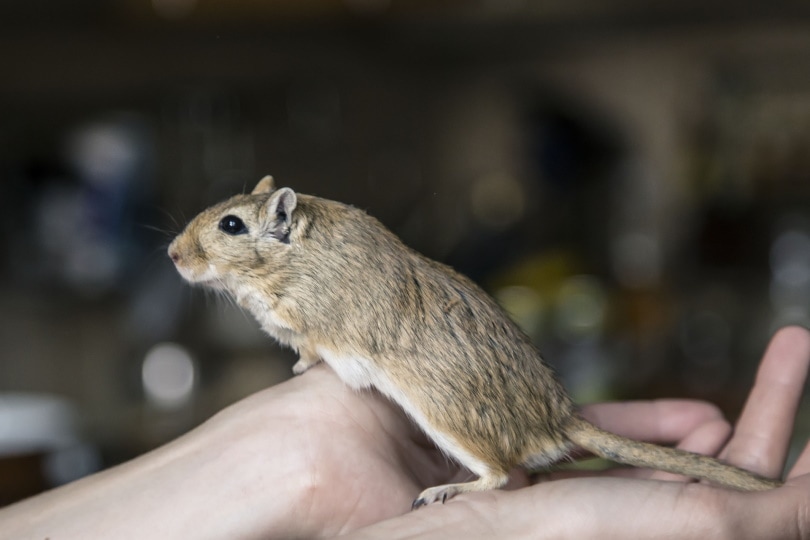
In general, Chinchillas are relatively quiet animals, but they do have a range of unique sounds that they use to communicate with one another and express their feelings, be it anger, fear, or simple contentment. For the novice Chinchilla owner, these different sounds can become confusing and overwhelming, and it can be stressful not knowing what your Chinchilla is trying to communicate.
Knowing the different sounds that your Chinchilla makes and for what reason will go a long way in helping you care for them and cater to their needs. You’ll know when they are hurt or unhappy or when they are content and comfortable just by learning the different sounds they make. In this article, we’ll help you decipher these sounds so you can get to know your Chinchilla a little better. Let’s get started!
The 8 Chinchilla Sounds and Their Audio
1. Low, Gentle Squeaking
A low, gentle, and irregular sound, characterized by a high-pitched squeaking, is usually a sign that all is okay in your Chinchilla’s world. This sound is a sign to other Chinchillas and to you that they are happy and content and that everything is safe.
2. Continuous Squeaking
Similar to gentle squeaking but more continuous and urgent sounding, this sound is usually a sign of excitement. This could be a Chinchilla seeing another familiar Chinchilla or seeing their owner or even being fed. While this sound is typically the sound of extreme happiness or excitement, they can also make a similar sound when in distress, so check on your Chinchilla to make sure of the context when you hear them squeaking in this way.
3. Barking
When a Chinchilla barks, it can sound similar to a duck quacking and is a rhythmic, urgent sound. They will usually make this sound as a warning to other Chinchillas of danger or a predator or possibly as a warning between males. Males will commonly make a similar sound when fighting.
4. Teeth Grinding
Usually a sign of a happy and content Chinchilla, teeth grinding sounds just like you’d expect! They will make this sound when they feel safe and happy, usually if they are being cuddled or eating a tasty treat.
5. Screaming
This sound is a loud, high-pitched scream, similar to squeaking but far more urgent sounding. Chinchillas will usually scream when they’re afraid, in great distress, or even in pain. Your Chinchilla may have heard a loud noise or seen something that they view as a predator, or they may have injured themselves somehow. If you hear this sound from your Chinchilla, you should check on them immediately.
6. Spitting (Kacking)
This sound is characterized by a sudden, sharp spitting or coughing noise, also known as kacking. This sound usually means your Chinchilla is angry or in defense mode, and you should stay away. Once they have spent some time alone and calm down, they will usually be fine, but if they continue with this behavior, there may be something else wrong.
7. Teeth Chattering
Rapid teeth chattering is usually another sign of anger or self-defense and a warning to stay away! This may not always be the case, though, and some Chinchillas will chatter their teeth when happy and content. Context is vital to figuring out the reason for chattering, and you’ll be able to tell from your Chinchilla’s body language whether they are angry or content!
8. Fighting
When Chinchillas fight, they make a sound similar to barking, but it is more frantic and urgent sounding. The bark will also be more irregular and differ in volume and rhythm, and when you hear it, you’ll know that there is a fight going down! This could be a squabble over food, territory, or a female, and you’ll probably need to separate males into different enclosures.
Final Thoughts
Despite Chinchillas being rather quiet animals, they are capable of many different vocalizations. Getting to know these different sounds will help a great deal in the care of your Chinchilla, and the more you spend time with them, the better you’ll get at assessing these sounds.
It is important to remember that almost every Chinchilla sound has a specific context, and you, their owner, will know best what they need when they make these sounds.
Featured Image Credit: webandi, Pixabay










